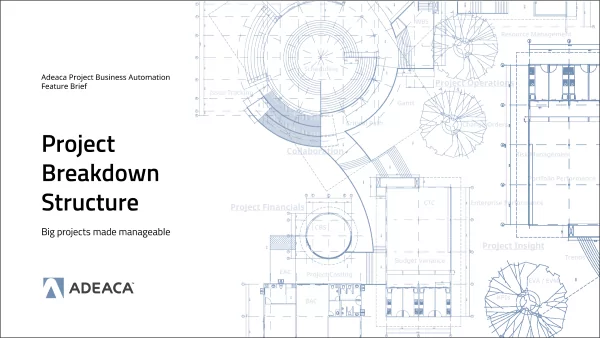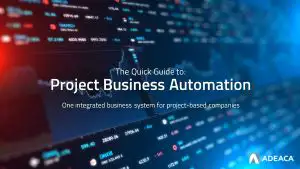The shift towards projectization has never been more apparent than now.
President Biden’s $1.2 trillion infrastructure bill has opened the floodgates to hundreds of thousands of public works projects including upgrades to roads and bridges, water and energy systems, broadband infrastructure, airports, ports and waterways, environmental remediation, and more. This greatly needed money towards the nation’s infrastructure system has state and local governments rushing to seek federal funds to repair and replace many of their transit systems. If you work in these sectors, this bill could be a boon to your business.
However, despite the spending money that has been granted, what comes next poses major concern and risk in regard to how projects will be executed due to the cost, scheduling, and technical problems the country has faced all year.
“A lot of people would like to see the money quickly spent,” said Anirban Basu, chief executive of Associated Builders and Contractors, in a NYT article. “They are going to look at the costs they are facing and extend out the projects because of constraints.”
According to Bent Flyvbjerg, professor at the University of Oxford, in a paper on Megaprojects and Risk, “megaproject development today is not a field of what has been called ‘honest numbers.’” Flybjerg discusses the megaprojects paradox— “the irony that more and more megaprojects are built despite the poor performance record of many projects due to the inadequate deliberation about risk and lack of accountability in the project decision-making process.”
The Challenge with Major Projects: Cost and Scheduling
What comes as no surprise is that a lot of projects tend to overrun their original schedule and cost estimates.
Projects are becoming larger and more complex. The problem is many companies are struggling to find an efficient way to manage the increased number of tasks, costs and risk that accompany these major projects. They simply don’t have a way to manage massive projects and often fail to keep track of every task and everyone involved on those tasks. As a result, a domino effect happens— potential issues get overlooked, they become major problems down the road, and projects are delivered late and over budget.
Regardless of the complexity of a project, companies need to find a way to handle all the moving parts and stakeholders involved from start to finish. When delivering projects is crucial to the success of your business, the focus needs to be on running those projects like a business.
Project Business Automation: The Way Forward to Managing Complex, Mega Projects
Project Business Automation takes a process-first approach to project business. As a new category of software solutions for companies who consider projects a critical component of their business, PBA provides a completely integrated and continuously updated view of all core project business processes on one end-to-end system.

Unfortunately, many large, complex projects are managed in disparate point solutions through an ERP, scheduling and resource management tool, and tons of spreadsheets. To integrate 10 to 15 different applications manually only guarantees mistakes and overlooked issues.
With the amount of upcoming mega projects the nation will be taking on, and the challenges that come along with it normally, but especially now as we are settling into a post-COVID economy, it’s more important than ever to invest in a business system that ensures transparency and real-time insight into the status of those projects. That is PBA.










